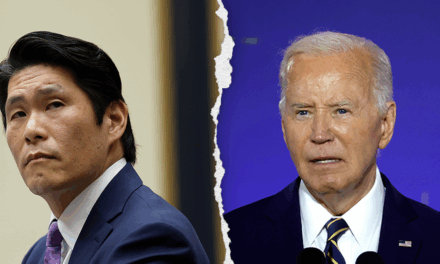The ongoing battle over immigration policy in Florida has reached a new level of intensity as the state’s Attorney General, Ashley Moody, stands firm after a contempt ruling related to the enforcement of a controversial immigration law. This law, aimed at cracking down on illegal immigration, has sparked significant debate and legal challenges across the state.
In a recent court ruling, a judge found the Florida Attorney General in contempt regarding the handling of certain provisions of the immigration law, which was deemed by some as overly aggressive in its approach towards undocumented individuals. Despite this setback, Moody has been unwavering in her stance, arguing that the law is essential for maintaining the integrity of the state’s immigration system.
The law in question was implemented with a focus on reinforcing border security and penalizing employers who knowingly hire individuals without legal authorization to work in the United States. Proponents argue that such measures are necessary for protecting jobs for legal residents and ensuring public safety. However, critics assert that the law fosters an environment of fear and discrimination against immigrant communities, regardless of their legal status.
Moody’s office has emphasized that the contempt ruling does not undermine their commitment to enforcing the law. They maintain that the Attorney General had acted in good faith and that any misunderstandings regarding the implementation of the law could be rectified without compromising its core principles.
“We are dedicated to upholding the rule of law in Florida,” said a spokesperson for Moody’s office. “This ruling will not deter us from our mission of enforcing the laws designed to protect our citizens and uphold our state’s interests.”
At the heart of the contempt ruling was an argument made by the plaintiffs, consisting of several advocacy groups, that the enforcement of the law led to violations of individual rights and improperly targeted vulnerable populations. The plaintiffs contended that the law had a chilling effect on community members who feared potential repercussions from law enforcement if they sought help or reported crimes.
The backdrop to this legal skirmish is a broader national conversation about immigration policy, where states are increasingly taking matters into their own hands due to perceived federal inaction. Florida, like many states, grapples with a significant number of undocumented immigrants. As the issue intensifies, state leaders are seeking ways to enact local measures that reflect their constituents’ sentiments regarding immigration.
Moody, a staunch supporter of the legislative measures surrounding immigration, was quick to respond to the ruling. In various public statements, she has reiterated her commitment to “protecting Florida’s employers and workers from illegal immigration.” The Attorney General has also launched campaigns to raise awareness among businesses on the legal ramifications of employing undocumented workers, emphasizing the importance of compliance with state and federal laws.
Advocates for immigrant rights, however, have cheered the contempt ruling as a necessary step in holding the state accountable for actions they believe are discriminatory. Organizations such as the Florida Immigrant Coalition have been vocal about their concerns regarding the law’s impacts, asserting that immigrants contribute significantly to the state’s economy and community fabric.
“This ruling demonstrates that the courts will hold the government accountable for unjust and harmful policies,” said a representative from the coalition. “Immigrants are our neighbors, friends, and colleagues; they deserve protection and respect, not harsh enforcement of laws that treat them as criminals.”
However, Moody’s legal team continues to argue the legitimacy of the state’s actions, highlighting that laws passed by the Florida legislature often reflect public sentiment, which is increasingly in favor of stringent immigration measures. Polling data suggest that a considerable portion of Florida’s populace supports efforts to reduce illegal immigration, which Moody believes provides a mandate for the Attorney General’s office to take a tougher stance.
As the controversy unfolds, both sides are preparing for what could become a protracted legal struggle. While the Attorney General’s office explores its options in responding to the ruling, the plaintiffs are gearing up to advocate for further protections and adjustments to the law that aim to safeguard the rights of immigrants.
The ripple effects of this legal battle have implications that extend beyond Florida’s borders as other states observe closely. With immigration continuing to be a hot-button issue on the national stage, many lawmakers are eager to adopt strategies similar to those in Florida. Observers suggest that the outcome of Florida’s situation may set a precedent for how states navigate the treacherous waters of immigration enforcement.
As these proceedings unfold, legal experts will be watching closely. The ramifications of the contempt ruling could influence future state-level immigration laws across the nation, especially as local jurisdictions face increasing pressure to manage the complex realities of undocumented populations living within their communities.
The conflict is also a reflection of the political divisions that characterize the current landscape of American politics. As Democrats and Republicans continue to clash over immigration reform at the federal level, state officials like Moody are increasingly prompted to take action. This dynamic not only complicates the legal landscape but also ignites passionate debates about justice, equity, and the role of government in immigration enforcement.
The Attorney General’s steadfast approach, despite legal obstacles, signals a potential escalation in the state’s immigration battles. Concerns and criticisms surrounding the law may prompt further public discourse about the socio-economic implications of strict immigration measures, given Florida’s diverse population and vibrant economy.
In this increasingly polarized environment, the question remains whether Moody’s resolute stance will sway public opinion or lead to further legal challenges. As communities continue to react to the unfolding drama, the ramifications of Florida’s immigration law will undoubtedly resonate beyond state lines, influencing the national dialogue on immigration reform and enforcement.
With implications extending far beyond the courtroom, Florida’s immigration law remains a focal point of contention, symbolizing broader struggles over identity, belonging, and the balance between upholding the law and protecting human rights. The conclusion of this legal battle may inform not only the future of immigration policy in Florida but also the evolving relationship between state and federal immigration laws across the United States.
In light of these developments, it is evident that the issues surrounding immigration in Florida are far from resolved. As both sides prepare for the next phase of legal proceedings, communities across the state will be watching closely, eager to understand how these outcomes may shape their own lives and the lives of their neighbors in the months and years to come.
































